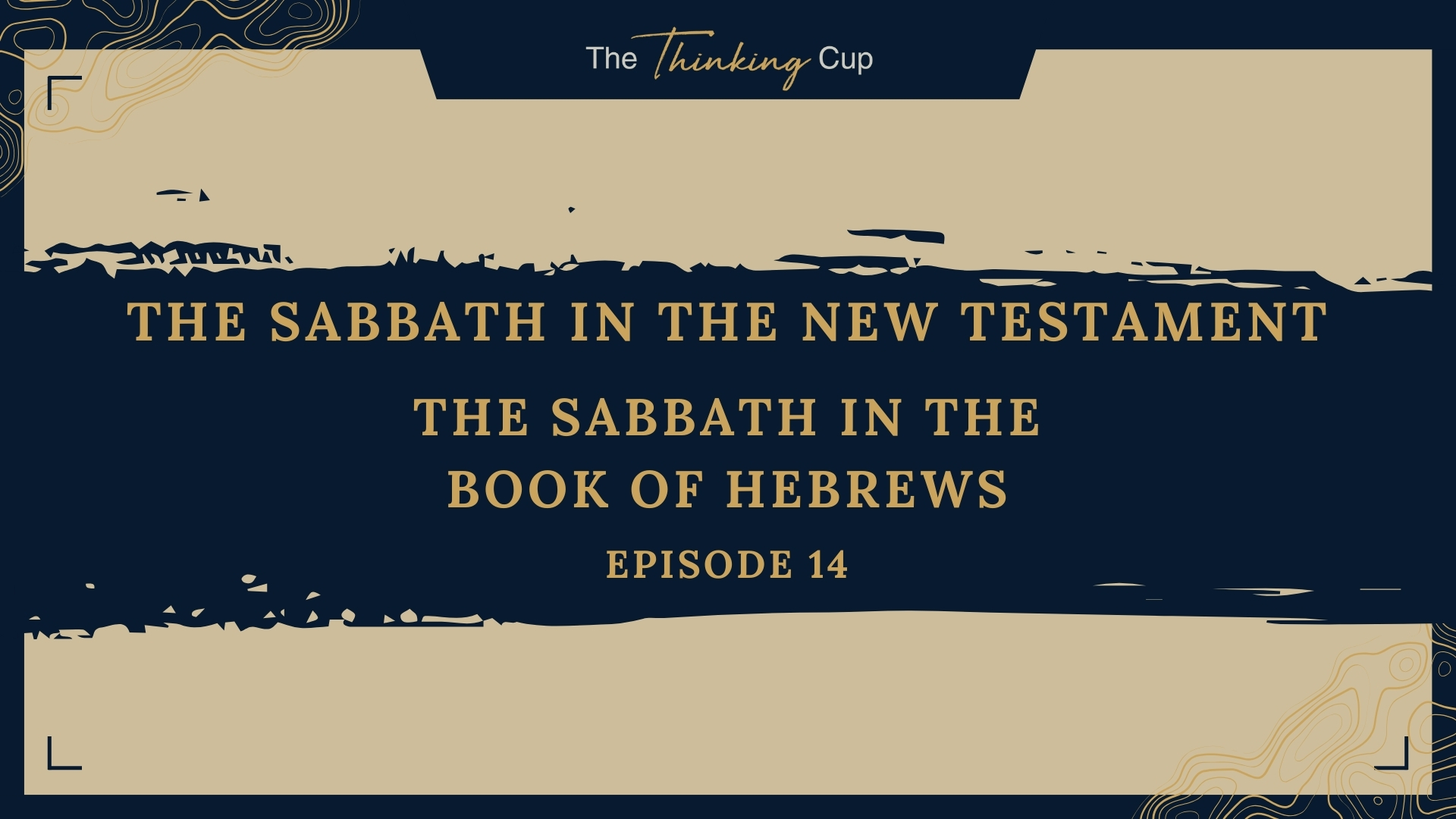The Book of Hebrews presents the Sabbath not as a literal day of worship but as a typological representation of spiritual rest. This approach is consistent with the broader biblical theme of rest, which extends beyond a weekly observance and points to deeper theological realities.
Even in the Old Testament, the idea of rest was used typologically. Deuteronomy 12:8-9, for example, connects rest with the land of Israel:
“You shall not do according to all that we are doing here today, everyone doing whatever is right in his own eyes, for you have not as yet come to the rest and to the inheritance that the Lord your God is giving you.” (Deuteronomy 12:8–9, ESV)
The theme of rest is also suggested in the Gospels. In Matthew 11:28–30, Jesus invites people to find spiritual rest in Him:
“Come to me, all who labor and are heavy laden, and I will give you rest. Take my yoke upon you, and learn from me, for I am gentle and lowly in heart, and you will find rest for your souls. For my yoke is easy, and my burden is light.”” (Matthew 11:28–30, ESV)
This statement immediately precedes two conflicts with the Pharisees regarding the proper observance of the Sabbath (Matt. 12:1–13), reinforcing the idea that Jesus offers a rest that surpasses mere Sabbath observance. Similarly, in Luke 4:16–21, Jesus publicly declares His Messiahship in the synagogue on the Sabbath by reading from Isaiah, effectively linking the Sabbath to the broader theme of salvation rest. In John 5:1–30, another Sabbath controversy arises in which Jesus offers heavenly rest, further illustrating that true rest is found in Him rather than in legalistic Sabbath observance.
The most extensive discussion of rest as a theological concept appears in Hebrews 3:7–4:13, where the writer draws from Old Testament passages to highlight both present salvation rest and future heavenly rest. Two key passages within this section relate directly to the question of the Sabbath.
The first passage is Hebrews 4:3–4:
“For we who have believed enter that rest, as he has said, “As I swore in my wrath, ‘They shall not enter my rest,’ ” although his works were finished from the foundation of the world. For he has somewhere spoken of the seventh day in this way: “And God rested on the seventh day from all his works.”” (Hebrews 4:3–4, ESV)
Here, the author connects salvation rest with God’s rest on the seventh day of creation (Gen. 2:2–3). This interpretation suggests that just as God ceased from His works, believers can enter into a spiritual rest by ceasing from their own works and trusting in Christ. The Sabbath is thus understood as a foreshadowing of the deeper rest available in the Messiah.
The second key passage is Hebrews 4:9-10:
“So then, there remains a Sabbath rest for the people of God, for whoever has entered God’s rest has also rested from his works as God did from his.” (Hebrews 4:9–10, ESV)
Notice the phrase “a Sabbath rest.” This phrase is translated in this way rather than “the Sabbath rest” based on both Greek grammar and contextual meaning. The key term used in this verse, “sabbatismos” (σαββατισμός), is unique in the New Testament and differs from the standard Greek word for the weekly Sabbath, “sabbaton” (Σάββατον). This distinction suggests that the passage does not refer to a specific day of Sabbath observance but rather to a broader, eschatological rest that believers enter through Christ. Additionally, Greek does not use an explicit indefinite article (“a” or “an”), but the absence of the definite article “τοῦ” before sabbatismos signals that an indefinite translation—”a Sabbath rest”—is more appropriate than “the Sabbath rest.” Contextually, the argument in Hebrews 3–4 contrasts the rest that Joshua provided in the Promised Land with a greater, ultimate rest still available to God’s people. The passage, drawing from Psalm 95, warns against missing this divine rest, much like the Israelites who failed to enter Canaan. The Sabbath rest mentioned here symbolizes not a weekly observance, but the final and complete rest found in Christ, which the Old Testament Sabbath merely foreshadowed. If the author had intended to affirm continued weekly Sabbath observance, he would have used “to Sabbaton” (the Sabbath) rather than sabbatismos, which broadens the meaning beyond a literal day. Thus, Hebrews 4:9 does not command Sabbath-keeping but instead points to the ultimate rest believers experience through faith in Christ, emphasizing the fulfillment of the Sabbath in Him rather than its continuation as a legal requirement.
“Whoever has entered the consummation-rest (this typological sabbatismos) will experience the completion of his work, as did God after the creation, and will enjoy the rest that is necessary for the festivity and praise of a Sabbath celebration. In conjunction, Hebrews 4:9–10 anticipate the festival of the priestly people of God in the heavenly sanctuary, celebrating in the presence of God the eternal Sabbath with unceasing praise and adoration…The Sabbath observance now demanded of the community is diligence to enter God’s rest through the exercise of faith in the word of promise and the response of obedience to the voice of God in Scripture.” [1]
Notably, the Book of Hebrews was written specifically to Jewish believers, yet it contains no command for them to observe the Sabbath. This silence is significant. If Sabbath observance were mandatory for Jewish believers under the New Covenant, one would expect Hebrews—along with other epistles addressed to Jewish Christians, such as James, 1 Peter, 2 Peter, and Jude—to emphasize its importance. However, no such command is given.
Hebrews presents the Sabbath as a typological symbol of salvation rest rather than a continuing obligation for believers. The writer draws from Old Testament passages to illustrate that the true Sabbath rest is found in Christ, not in the observance of a specific day. The absence of any instruction regarding Sabbath-keeping in a letter addressed to Jewish believers strongly suggests that it is not a requirement under the New Covenant. Instead, the focus is on resting in Christ, both in the present through salvation and in the future through eternal life with God.
Summary and Conclusions
The New Testament teaching on the Sabbath is clear: while the Sabbath has always remained on the seventh day of the week, there is no longer an obligation to observe it. This is true not only based on the Old Testament and the Law of Moses but also on New Testament doctrine.
For Jewish believers, freedom from the Mosaic Law includes freedom from mandatory Sabbath observance. However, the New Testament does not prohibit a Jewish believer from observing the Sabbath if he so desires. He is not only free to keep it but also free to decide how to observe it—either strictly as a day of rest, as it was originally prescribed in the Old Testament, or as a day of worship, which is a much later development. The key principle is that Sabbath observance is entirely optional. In fact, no specific day of the week is required to be set apart. Every believer, whether Jew or Gentile, has the liberty to determine whether they will dedicate a particular day for rest or worship, and if so, which day they will choose.
On a corporate level, while the Church is commanded to gather for worship and fellowship (Heb. 10:25), the selection of the specific day for these gatherings is left to the discretion of each congregation. There is no biblical requirement that the Church must meet on the Sabbath, nor is there a mandate to replace the Sabbath with Sunday. Instead, the decision regarding when to meet is left to the collective judgment of each local body of believers.
Sabbath observance is no longer a requirement under the New Covenant. Jewish believers have the freedom to observe it if they choose, but they are not obligated to do so. Likewise, Gentile believers are under no expectation to keep the Sabbath. Each believer has the liberty to set aside a day for rest or worship if they wish, but there is no command to do so. The Church, as a corporate body, must meet regularly, but the day on which it meets is a matter of practical decision rather than a divine mandate. The focus of New Testament teaching is not on the legalistic observance of days but on the believer’s relationship with Christ and the unity of the Church in worship and fellowship.
In Christian Love,

[1] William L. Lane, Hebrews 1–8, vol. 47A, Word Biblical Commentary (Dallas: Word, Incorporated, 1991), 102.




0 Comments